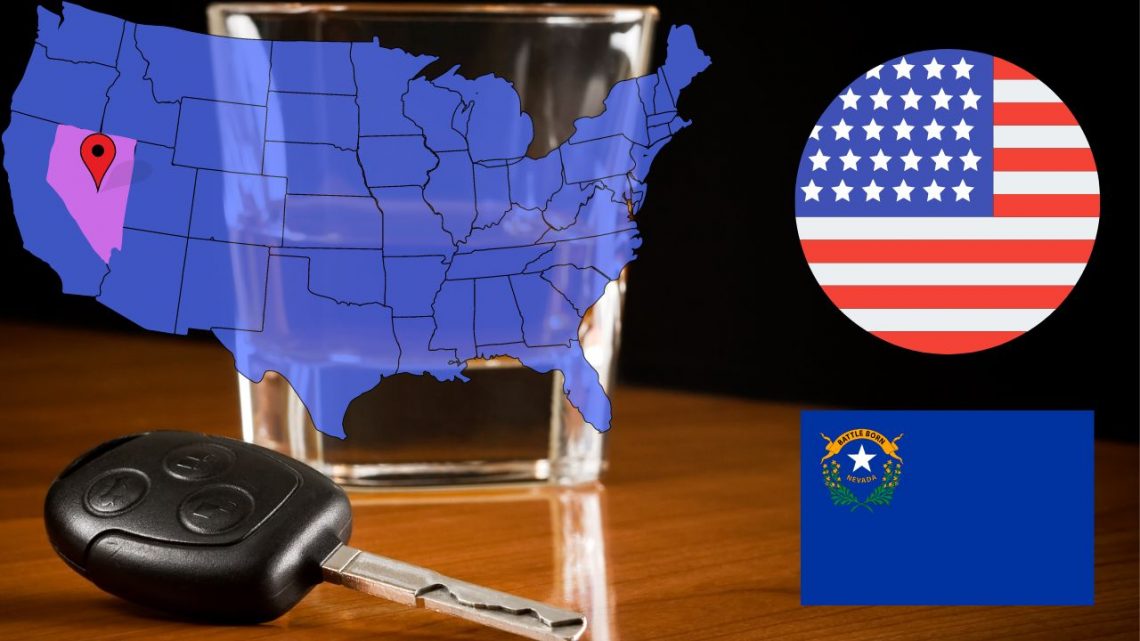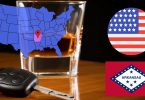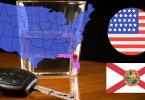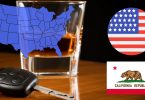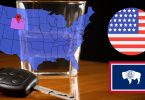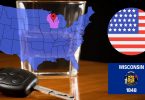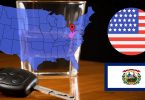In Nevada, driving with a blood alcohol content (BAC) exceeding the legal limit of 0.08%—equivalent to 80 milligrams of alcohol per 100 milliliters of blood—can result in a DUI arrest for driving under the influence.
Please be aware that this article aims to increase public knowledge of Nevada’s prohibitions against drunk driving. This page does not endorse or promote drunk driving in any state or region.
What is the legal alcohol limit for driving in Nevada?
In Nevada, the legal blood alcohol content (BAC) limits for drivers are strictly enforced to ensure road safety. These limits vary depending on the driver’s license type and age, reflecting the state’s commitment to reducing alcohol-related accidents. Here’s a breakdown of the BAC limits by driver category:
- Regular Drivers: The legal limit is 0.08%. This applies to the majority of drivers operating personal vehicles.
- Commercial License Holders: For those holding a commercial driver’s license, the legal limit is lower, set at 0.04%, recognizing the higher responsibility associated with operating commercial vehicles.
- Minors (Under 21): It is illegal for minors to drive with any detectable amount of alcohol in their system. Nevada enforces a zero-tolerance policy to protect young drivers and others on the road.
Drink and Drive Penalties and Punishments in Nevada
In Nevada, the penalties for driving under the influence (DUI) are designed to deter individuals from engaging in this dangerous behavior. These penalties vary based on the number of offenses and the severity of the incident. Below is an overview of the penalties associated with a typical first DUI offense. It is important to note that penalties for subsequent convictions escalate significantly, and offenses such as a third DUI within seven years or a DUI resulting in death or substantial bodily harm are treated as felony offenses.
Criminal Penalties for a First DUI Offense:
- Arrest and potential vehicle impoundment.
- Jail Time: Two days to six months, or equivalent community service.
- Fines: Range from $400 to $1,000.
- Additional Fees: A $60 fee for the mandatory chemical test.
- Rehabilitation: Enrollment in DUI School or substance abuse treatment programs, and attendance at a Victim Impact Panel.
Driver License Penalties:
- Ignition Interlock Device: Installation in the vehicle or license revocation.
- Reinstatement Fees: $121 for reinstatement, along with a $35 Victims Compensation Civil Penalty and a $42.25 Driver License Fee plus a $26 Testing Fee.
- DMV Tests Required: Vision, knowledge, and possibly skills tests.
- Insurance: SR-22 Certificate of Liability Insurance required for three years.
Impact on Your Record:
- Revocation: A driver license revocation is separate from any criminal case. It can be appealed through the DMV Office of Administrative Hearings, but reinstatement is not automatic and depends on meeting all requirements.
- Permanent Record: A DUI arrest and/or conviction remains on your criminal history indefinitely. A felony DUI conviction brands you as a felon in future DUI arrests.
- DMV Record: Convictions and license revocations are permanent on your full DMV record, though a DUI conviction may only appear on your driver history for up to ten years.
It is crucial for drivers in Nevada to understand that the consequences of a DUI extend far beyond immediate penalties. The impact on one’s criminal and driving records can affect various aspects of life, from job opportunities to insurance rates. For the most current information and updates on DUI laws and penalties, individuals are encouraged to frequently consult the official state website. This ensures awareness of any changes in legislation or procedures related to DUI offenses in Nevada.
How Can I Calculate If My Alcohol Blood Limit Is Legal in Nevada?
In Nevada, law enforcement officials use breathalyzers and blood tests to determine a driver’s blood alcohol content (BAC) level. These methods are considered accurate and are the standard for identifying whether someone is driving under the influence (DUI). However, as a driver, it’s crucial to understand your own limits and ensure you’re not over the legal BAC limit of 0.08% for regular drivers, 0.04% for commercial license holders, and a zero-tolerance policy for minors under 21. As an experienced phlebotomist with a decade of expertise, I recommend two methods to help you gauge your BAC level responsibly:
- Use a High-Quality Alcohol Breathalyzer: I recommend the BACtrack S80, known for its professional-grade accuracy. It’s DOT & NHTSA approved and FDA 510(k) cleared, making it a reliable choice for personal use. Keeping a device like the BACtrack S80 in your car can be a wise decision, especially in Nevada, where people might underestimate their impairment level. This device can provide you with a quick assessment of your BAC, helping you make informed decisions about your ability to drive safely.
- Utilize a BAC Calculator: Along with fellow phlebotomists and web developers, I’ve developed an online BAC calculator that estimates your BAC level based on factors such as weight, gender, the amount of alcohol consumed, and the time elapsed since drinking. While this calculator can offer an approximation of your BAC, it’s important to remember that individual metabolism rates and other factors can influence accuracy.
It’s essential to note that both of these methods should be used as tools to aid in decision-making rather than definitive measures of your legal ability to drive. Neither method guarantees 100% accuracy due to the complexities of how alcohol is metabolized by different individuals. However, they can provide valuable insights and potentially deter you from driving if there’s a chance you might be over the legal limit. Always err on the side of caution and consider alternative transportation options if there’s any doubt about your sobriety. Remember, the goal is to ensure your safety and that of others on the road.
Ways to Avoid Driving with a High BAC in Nevada
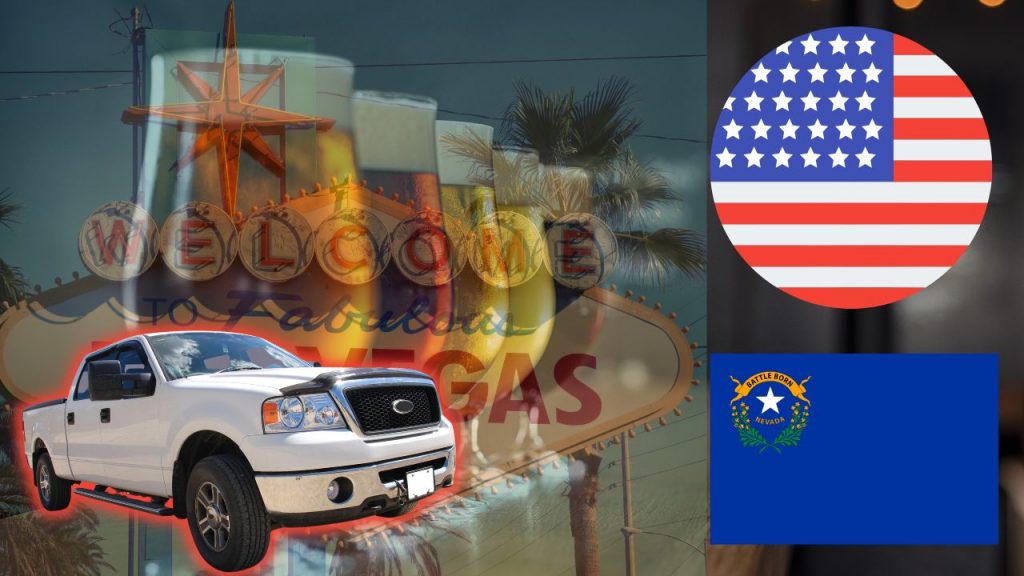
Driving under the influence of alcohol poses significant risks to both the driver and others on the road. In Nevada, where the legal Blood Alcohol Content (BAC) limits are strictly enforced, it’s crucial to plan ahead to ensure you don’t end up behind the wheel after consuming alcohol. Here are practical strategies to avoid driving with a high BAC:
- Utilize Ride-Sharing and Taxi Services: Technology has made it easier than ever to find a safe ride home without resorting to driving under the influence. Apps like Uber and Lyft offer convenient, user-friendly platforms for summoning a ride with just a few taps on your smartphone. Additionally, local taxi companies provide reliable alternatives. In Las Vegas, for example, Whittlesea Blue Cab offers extensive services, while Deluxe Taxicab Service is a go-to option in Henderson. These services are not only convenient but also widely available across most parts of Nevada, ensuring you can find a ride at any hour.
- Order a Designated Driver Service: If you’ve driven to a location and then consumed alcohol, you might be concerned about leaving your car behind. Fortunately, designated driver services offer a solution. These services send a driver to your location to drive you home in your own vehicle, ensuring both you and your car get back safely. In Las Vegas, Designated Drivers, Inc. is a well-known provider, offering peace of mind to those who find themselves unable to safely drive home. Similarly, BostonCoach serves the Henderson area with reliable transportation options. A simple Google search for “designated driver service” along with your city name will provide you with local options.
By planning ahead and choosing safe transportation alternatives, you can enjoy Nevada’s vibrant nightlife and entertainment without compromising on safety. Whether it’s a night out on the Strip in Las Vegas or a gathering in Henderson, these strategies ensure that you remain responsible and avoid the severe consequences associated with DUI offenses. Remember, the cost of a ride home is always less than the cost of a DUI.
Sticking to DUI Laws in Nevada: Sad Statistics
Driving under the influence (DUI) is a serious offense in Nevada, where DUI arrests rose from 436 in 2020 to 553 in 2021, highlighting the urgency to curb drunk driving. Nevada enforces strict DUI laws to reduce such incidents, emphasizing the importance of knowing your blood alcohol content (BAC) before driving. To ensure you’re within legal limits, use an alcohol breathalyzer.
To avoid DUI risks, opt for alternative transportation like Uber, local taxis, or designated driver services. It’s crucial to stay informed on DUI regulations by visiting Nevada’s Department of Motor Vehicles website.
Drunk driving compromises safety, impairing your ability to control both yourself and your vehicle. Don’t rely on subjective assessments of your drinking and driving capabilities. If you’ve been drinking, choose safer transportation options to ensure you and others on the road remain safe. Always aim to keep your BAC below Nevada’s legal threshold.

